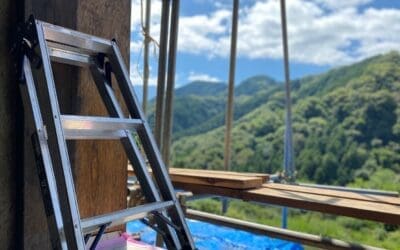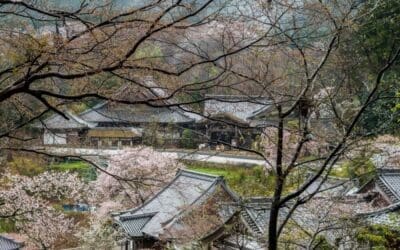When buyers first explore Japan’s countryside housing market, they inevitably ask the same question: Why do I need to pay a fee upfront? This confusion is understandable. It stems from an urban-centric view of a property buying process that is fundamentally broken for rural transactions.
What you are encountering is not greed; it is the economic reality of a challenged system. The standard commission-based model, designed for high-value city apartments, fails completely when applied to the countryside. This is precisely where most of Japan’s hidden opportunities exist. In response, innovative firms have developed alternative systems grounded in Japanese real estate fees. These fees are not a barrier. They are the solution that makes a purchase possible.
Understanding why these fees are non-negotiable requires a closer look at what it truly takes to acquire property outside Japan’s major cities. It also means acknowledging that the traditional process is no longer fit for purpose. For anyone serious about investing in an akiya, this new model is the only viable path forward.
The Failure of the Commission-Only Model
A System Built for Tokyo, Not for Towns
The current real estate commission structure in Japan is legally defined: 3% of the sale price plus ¥66,000. Crucially, this payment only materializes if and when a deal closes successfully. This model works perfectly for a ¥60 million condo in Shibuya. It completely collapses for a ¥5 million farmhouse in a remote village.
The potential payoff for an agent is so small that most will not even respond to an inquiry for a low-cost rural home. The risk and effort involved far outweigh the minimal commission they might earn months later. This system was designed for swift, high-value urban sales, not for sprawling plots of land in Kumamoto or legacy homes in Nagano.
This is precisely where Japanese real estate fees become necessary. They fund the actual work required to research, visit, inspect, and manage the purchase of a property that falls outside the scope of the traditional model. Akiya listings, in particular, exist in a market vacuum. The system technically allows for their sale but offers no practical rural property support. Buyers are left stranded unless a dedicated service provider steps in, and that provider must be paid for their work upfront.
What Real Rural Property Support Entails
It’s a Scavenger Hunt, Not a Shopping Trip
Buying a rural home in Japan is rarely about choosing from a clean, curated menu of options. It is an intensive investigation. The process for these properties often involves navigating unclear land titles, deciphering handwritten ownership registrations from decades past, assessing disconnected utilities, and understanding obscure zoning quirks that can make or break a project’s feasibility.
Effective rural property support extends far beyond a simple property showing. It is a comprehensive, front-loaded service that includes:
- Document Retrieval and Translation: Unearthing and interpreting decades-old records from local municipal offices.
- Negotiating with Heirs: Tracking down and communicating with absentee owners or multiple family heirs who may have inherited the property.
- Confirming Structural Viability: Assessing the true condition of a building, which has often sat vacant for years.
- Interpreting Old Surveys: Analyzing outdated or ambiguous land surveys to confirm property boundaries.
- Chasing Cross-Prefectural Approvals: Managing bureaucracy that often spans multiple jurisdictions.
Because these critical tasks must happen long before a sale can even be considered, no commission-based agent will undertake them. The financial incentive simply isn’t there. This is why Japanese real estate fees are the only realistic mechanism for delivering this essential, in-depth involvement. Our team dives into feasibility from day one, tackling the full spectrum of complications baked into the akiya buying process.
Why the Existing System Is Designed to Ignore You
A Blind Spot in Japan's Economic DNA
At its core, Japan’s real estate industry was not built for flexibility. It was engineered to rapidly move standardized assets like condominiums and office buildings within major city centers. The commission model is optimized for this high-volume, high-value environment. This is what real estate agents in Japan are trained to prioritize.
When you venture outside that narrow framework, you hit institutional walls. Whether you want to buy a traditional ryokan in Shizuoka, a farmhouse in Wakayama, or a disused warehouse near Mount Aso, the system will not stop you, but it will not help you, either. The process for acquiring a unique rural property is simply not designed for success.
Worse yet, government and institutional players have shown little interest in adapting the transactional framework. Millions of akiya dot the country, representing immense economic and cultural potential.
What Japanese Real Estate Fees Actually Cover
Investing in Clarity and Avoiding Failure
So, what does a buyer get for these upfront Japanese real estate fees? At Akiyaz, these fees fund an entire infrastructure of research, coordination, and dedicated problem-solving. This is not a payment for a simple tour; it is an investment in a comprehensive due diligence process.
This service guarantees the vital work that traditional agents cannot or will not do for a low-cost property. This includes:
We investigate the full history of the property to ensure the title is clean and transferable, translating key documents.
[/aioc_content_carousel_item][aioc_content_carousel_item _builder_version=”4.27.4″ _module_preset=”default” theme_builder_area=”post_content” title=”On-Site Documentation” subtitle=”Your Eyes on the Ground Before You Ever Travel” hover_enabled=”0″ sticky_enabled=”0″]
We provide extensive visual records, including detailed video walkthroughs, to give you a clear understanding of the property’s condition before you visit.
[/aioc_content_carousel_item][aioc_content_carousel_item _builder_version=”4.27.4″ _module_preset=”default” theme_builder_area=”post_content” title=”Direct Local Communication” subtitle=”Bridging the Language and Bureaucratic Gap” hover_enabled=”0″ sticky_enabled=”0″]
Our team communicates directly with local government officials, sellers, and neighbors to resolve issues.
[/aioc_content_carousel_item][aioc_content_carousel_item _builder_version=”4.27.4″ _module_preset=”default” theme_builder_area=”post_content” title=”Essential Inspection Coordination” subtitle=”Identifying Critical Physical Risks Before You Commit” hover_enabled=”0″ sticky_enabled=”0″]
We manage the logistics for critical inspections, including structural assessments, roof checks, and asbestos or septic system evaluations.
[/aioc_content_carousel_item][aioc_content_carousel_item _builder_version=”4.27.4″ _module_preset=”default” theme_builder_area=”post_content” title=”Legal Pathway Validation” subtitle=”Ensuring the Property Fits Your Visa and Business Goals” hover_enabled=”0″ sticky_enabled=”0″]
We confirm the property’s viability for your intended use, whether for residency, a business, or a visa application.
[/aioc_content_carousel_item][aioc_content_carousel_item _builder_version=”4.27.4″ _module_preset=”default” theme_builder_area=”post_content” title=”Navigational Support” subtitle=”Providing Expertise on Hyper-Local Regulations” hover_enabled=”0″ sticky_enabled=”0″]
We provide hands-on rural property support to guide you through the specific bureaucratic hurdles in your target region.
[/aioc_content_carousel_item][/aioc_content_carousel]
Paying for this clarity is not a sunk cost. It is a critical investment in avoiding expensive and heartbreaking failures down the line.
Why Set Fees Are More Honest Than Commissions
An Alignment of Interests
The truth is that paying a set, upfront rate removes ambiguity and conflicts of interest. It puts the buyer and the service provider on the same team. You are not hiring someone who only profits if you close a deal, regardless of the property’s issues. You are hiring an expert to tell you whether closing the deal is a sensible decision in the first place.
That level of unbiased honesty is only possible within a structure based on Japanese real estate fees. It empowers us to advise a client that “this akiya has too many hidden problems and is not worth the risk” without jeopardizing our own revenue. For buyers seeking genuine rural property support, that impartial guidance is invaluable.
Think of it this way: the standard property buying process in Japan asks you to navigate a complex maze with no map and no guide.



